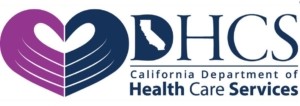What Is Substance Abuse Therapy?
Table of Contents
Approximately 23.5 million Americans have a drug or alcohol addiction, which translates to roughly one in every 10 Americans over the age of 12. Unfortunately, only 11% of people with an addiction receive treatment. And yet, professional treatment is the best chance for an individual to address their addiction and move towards recovery. Treatment can include detox, substance abuse education, and substance abuse therapy.
What is Substance Abuse Therapy?
Addiction is a brain disease that causes individuals to prioritize their need for a substance despite the potentially harmful consequences. As addiction is a disease of the brain, a lot of the treatment lies within therapy.
Substance abuse therapy uses therapy to help individuals understand why they started to abuse substances, their triggers, how to cope with their triggers, and more. Additionally, during substance abuse therapy, an individual may be co-diagnosed with a mental health disorder that accompanies their addiction.
Struggling with addiction plus a mental health condition is quite common, and is known as co-occurring disorders. It’s crucial that individuals with co-occurring disorders are properly diagnosed, as treatment for both conditions is necessary for a successful recovery.
For example, let’s say a person knows they’re struggling with addiction but doesn’t realize they also have bi-polar disorder. It’s likely that during their manic episodes when they’re more likely to take risks and abuse substances. Without diagnosing and addressing the bi-polar disorder, so the manic episodes can be subdued, treatment of addiction can’t be successful.
Types of Substance Abuse Therapy
There are many types of therapy programs that an individual can take during their substance abuse treatment. The most common therapies include:
Cognitive Behavioral Therapy (CBT)
Cognitive behavioral therapy is one of the most popular therapy approaches for addiction. CBT helps individuals understand the negative inner thoughts and feelings that steer them towards substance abuse, so they may address and change their way of thinking. Additionally, CBT can be used to treat many co-occurring mental health conditions, such as anxiety, depression, and PTSD.
12-Step Programs
A 12-step program can be seen as a type of substance abuse therapy, as it takes individuals through understanding their addiction. These programs help individuals accept responsibility for their previous actions, establish a support system, and make a commitment to change. Some of the most popular 12-step programs include Alcoholics Anonymous and Narcotics Anonymous.
Family Therapy
Family therapists understand the power that our relationships can have. When it comes to addiction, family therapy explores the family’s impact or experience in the patient’s addiction journey. Family therapy can be used to heal cracked bonds if the patient has broken their family’s trust several times over. Or, if the family dynamic played a contributing role in leading to the patient’s addiction, the therapist looks to address that with everyone present.
Family therapy requires willing participation from family members. Additionally, while family therapy can be beneficial, it should not replace individual treatment for the patient. Instead, the patient can supplement their individual therapy with family therapy.
Group Therapy
Group therapy is when an intimate group of individuals struggling with the same type of addiction meet. This type of therapy has many benefits:
- Patients usually feel safest sharing their experiences with others who have had similar experiences.
- It creates a support group that participants feel they can lean on when they need help.
- It can be motivating to see people in group therapy who are further along in their recovery journey.
Similar to family therapy, group therapy should be in addition to individual therapy – not instead of.
Dana Point Rehab Campus
If you’re looking for substance abuse therapy in California, Dana Point can help. We offer a wide variety of substance abuse programs, all of which include evidence-based therapy options. Book a consultation today to find out more.









Leave a Reply
Want to join the discussion?Feel free to contribute!